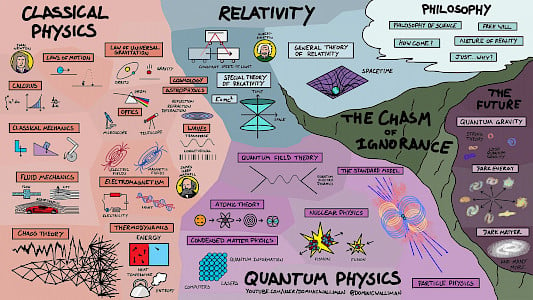Turning Passion into Discovery: How to Successfully Complete a Ph.D. in Physics

Blog / February 22, 2025
phd in physicsphd in physics eligibilityhow to do phd in physicsPhD in Physics DurationPhysics is the language of the cosmos and can also be known as the key to understanding the very fabric of reality. It explains everything from the motion of galaxies to the quantum behavior of subatomic particles. The world as we know it, be it technology, energy, healthcare, or space exploration, runs on the laws of physics. From the revolutionary laws of Newton and Einstein through recent developments in quantum mechanics and astrophysics, this field widens our understanding of the cosmos and extends human knowledge.
A Ph.D. in Physics stands as the ultimate achievement in academic research for persons who want to understand universe mysteries while seeking deeper explanations. The program targets ambitious graduates dedicated to theoretical physics and experimental physics research and the development of advanced scientific solutions that lead to new discoveries. Students seeking leadership positions in physics can achieve those goals through their Ph.D. training, which will equip them with the necessary skills and expertise for various physics disciplines.

Source: https://bigthink.com/
What Exactly is a Ph.D. in Physics?
The Ph.D. in Physics educates scholars about advanced research through specific condensed matter physics investigations, high energy physics, quantum computing, astrophysics and nuclear physics. The curriculum features both theoretical studies and experimental and computational methods that students need to achieve scientific developments.
Doctoral candidates in physics conduct practical research while working with scientists and institutions to make fresh scientific discoveries. Students who conduct research create technological breakthroughs and medical discoveries that resolve worldwide issues, including discovering renewable power while fixing climate change.
How to Do a Ph.D. in Physics?
Many students who desire to get a Ph.D. in Physics wonder about the steps they need to take to begin the prestigious academic path. Overview:
- After earning a Master’s Degree: Students need to earn their Master's Degree before applying for a Ph.D. program in Physics or related fields unless participating in an integrated program between the Master's and Ph.D. levels.
- Meet the Ph.D. in Physics Eligibility: The requirements for Ph.D. in Physics admission are established by universities through multiple assessment standards, including academic standards, entrance exam success, and scientific research plan quality.
- Qualifying the Entrance Exams: Candidates must pass various national or institutional entrance examinations, including GATE, CSIR-NET and JEST, to qualify for university admission.
- Selection of Research Area: Students should select their research field, which should be particle physics, quantum optics, materials science, and theoretical physics, before they apply.
- Application to a Recognized University: Students should provide academic records and submit their research proposal with letters of recommendation and a brief statement of purpose during university admission.
- Completing the Coursework and Research: Students enrolled at the university proceed with their coursework while conducting research that leads to scientific journal publications.
- Thesis Defense: A candidate must present their dissertation before an academic committee during their final degree stage which is known as thesis defense.
Ph.D. in Physics Eligibility
The Ph.D. in Physics eligibility vary by institution but generally include:
- A Master’s degree (M.Sc. in Physics or related fields) with a minimum required percentage.
- Qualifying in entrance exams such as GATE, CSIR-NET, or university-specific tests.
- A strong academic and research background with prior project work or publications.
- A well-defined research proposal outlining the candidate’s area of interest.
- Proficiency in mathematics and computational methods used in physics research.
Ph.D. in Physics Duration
The Ph.D. in Physics duration typically ranges from 3 to 6 years, depending on the nature of the research, specialization, and institutional requirements.
- First Year: Coursework, literature review, and research proposal development.
- Second and Third Year: Experimental or theoretical research, data analysis, and initial paper publications.
- Fourth to Sixth Year: Advanced research, thesis writing, and dissertation defense.
The duration may vary based on factors such as research complexity, publication requirements, and funding availability.
Career Opportunities after a Ph.D. in Physics
Graduates with a Ph.D. in Physics have diverse career paths available to them in academia, research institutions, government agencies, and industries such as:
- Academia & Teaching
- Scientific Research
- Aerospace & Space Research
- Technology & Engineering
- Medical Physics
- Financial & Data Science
From Quantum Realms to Cosmic Mysteries—Your Ph.D. in Physics Journey Begins at Shiv Nadar University (Institution of Eminence)
The School of Natural Sciences at Shiv Nadar University offers a well-rounded Ph.D. in Physics curated to serve a wide range of research interests to aspiring students. At the university, more than half of research projects are multidisciplinary in nature, compiling integrations in various departments in the School of Natural Sciences and research centres.
Ph.D. in Physics Subjects
A Ph.D. in Physics syllabus includes an array of subjects, ranging from classical mechanics to high-energy physics & beyond. Some of the common Ph.D. Physics subjects are:
- Classical Mechanics
- Statistical Mechanics
- Quantum Mechanics
- Classical Electrodynamics
- Explorations in Research
- Practicum in Teaching and
- Ph.D. Thesis
Areas of Research at Shiv Nadar University
- Experimental and Theoretical Condensed Matter Physics and Materials Physics
- Experimental and Theoretical Soft Matter Physics
- Theoretical High Energy Physics
- Mathematical and Statistical Physics, and
- Cosmology and Astrophysics
Parting Notes
Ph.D. in Physics is beyond academic degrees. It is a way to discover the universe's mysteries, solve real-life problems, and create excellent innovations in science and technology. Whether one loves theoretical models, experimental physics, or applied research, this Ph.D. journey has no end to intellectual or career growth. Going for a Ph.D. at a reputed university like Shiv Nadar University is potentially a life-altering move toward a high-flying career in physics for students with the wish to explore the original from beyond the existing and to discover new frontiers in knowledge.